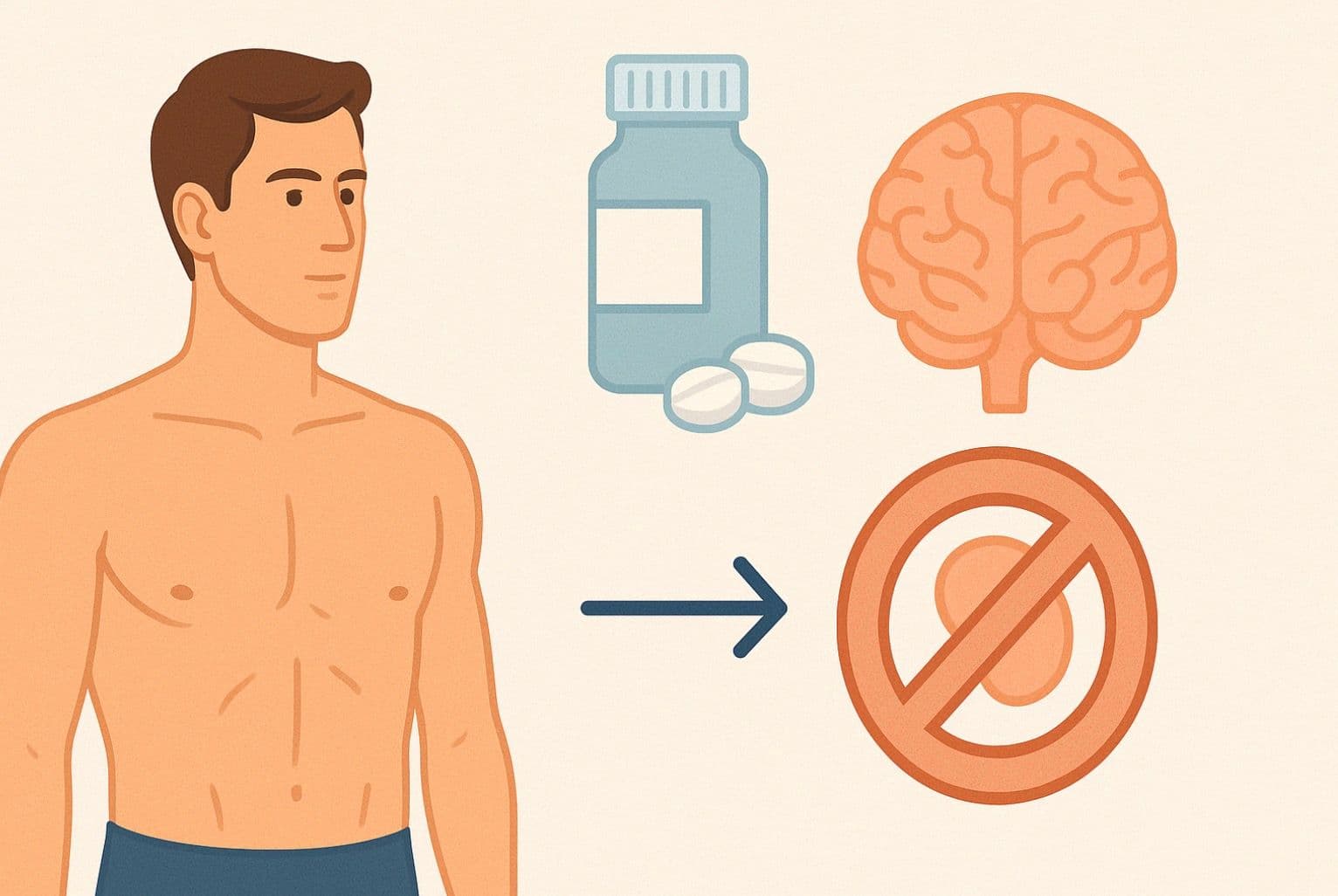Does Enclomiphene Lower Estrogen? Understanding How It Works
Published on:
Updated on:

People are asking...
Have a question? Ask us.
At AlphaMD, we're here to help. Feel free to ask us any question you would like about TRT, medical weightloss, ED, or other topics related to men's health. Or take a moment to browse through our past questions.
Updated on July 23rd, 2025
If you’re researching hormone health or testosterone replacement therapy (TRT), you may have come across enclomiphene—a compound that’s gained popularity for its ability to stimulate natural testosterone production. But a common question patients have is: Does enclomiphene lower estrogen? The answer is more nuanced than a simple yes or no. In this article, we’ll explain how enclomiphene works, its relationship with estrogen, and what that could mean for your hormone therapy plan.
What Is Enclomiphene?
Enclomiphene is one of two isomers of clomiphene citrate, a medication that’s long been used in fertility treatments. While clomiphene contains both the zuclomiphene and enclomiphene isomers, enclomiphene on its own is considered the “cleaner” and more targeted compound for increasing testosterone.
Enclomiphene works by blocking estrogen receptors in the brain—specifically in the hypothalamus. This tricks the body into thinking estrogen levels are low, which prompts the pituitary gland to release more LH (luteinizing hormone) and FSH (follicle-stimulating hormone). These hormones then signal the testes (or ovaries) to produce more testosterone and other sex hormones naturally.
Does Enclomiphene Lower Estrogen?
Technically, enclomiphene does not directly lower estrogen levels in the bloodstream. Instead, it blocks estrogen receptors in the hypothalamus, which can give the body the impression that estrogen is lower than it actually is. As a result, the body increases hormone production upstream (like LH and FSH), which can raise testosterone—but not necessarily reduce estrogen in circulation.
In fact, for some individuals, estrogen levels might remain the same or even increase slightly due to the elevated testosterone being aromatized (converted) into estrogen. This is why some patients using enclomiphene may still need to monitor their estradiol (E2) levels to ensure hormone balance is maintained.
Why This Matters for Patients
Maintaining a healthy balance between testosterone and estrogen is crucial for both men and women. In men, too much estrogen can lead to symptoms like mood swings, water retention, and gynecomastia (enlarged breast tissue). In women, estrogen balance is key to reproductive health and bone density.
While enclomiphene can help stimulate natural testosterone production, it’s not a one-size-fits-all solution. Some patients may need additional medications—such as aromatase inhibitors—to manage estrogen if it becomes elevated. Others may find that enclomiphene alone keeps hormones in balance without the need for add-ons.
Monitoring Hormone Health
Whether you’re using enclomiphene as part of a fertility protocol or a TRT regimen, regular lab testing is essential. Measuring total testosterone, free testosterone, estradiol, LH, and FSH gives providers the full picture of how your endocrine system is responding.
Additionally, patients should monitor how they feel—energy levels, sleep quality, libido, focus, and mood can all be affected by hormonal shifts.
Final Thoughts
So, does enclomiphene lower estrogen? Not directly. It acts on the brain to influence hormone signaling, which can increase testosterone production without suppressing the body’s own systems. While it may help regulate estrogen indirectly, it’s not considered an estrogen-lowering medication in the traditional sense.
If you’re considering enclomiphene or exploring options for hormone therapy, it’s important to work with a provider who understands the full hormonal landscape. At AlphaMD, we provide personalized telehealth consultations and ongoing lab monitoring to help patients—both men and women—find the right hormonal balance for optimal health.
Have a question? Ask us.
At AlphaMD, we're here to help. Feel free to ask us any question you would like about TRT, medical weightloss, ED, or other topics related to men's health. Or take a moment to browse through our past questions.
People are asking...
Get $30 off your first month’s order
Enter your email address now to receive $30 off your first month’s cost, other discounts, and additional information about TRT.
Legal Disclaimer
This website is a repository of publicly available information and is not intended to form a physician-patient relationship with any individual. The content of this website is for informational purposes only. The information presented on this website is not intended to take the place of your personal physician's advice and is not intended to diagnose, treat, cure, or prevent any disease. Discuss this information with your own physician or healthcare provider to determine what is right for you. All information is intended for your general knowledge only and is not a substitute for medical advice or treatment for specific medical conditions. The information contained herein is presented in summary form only and intended to provide broad consumer understanding and knowledge. The information should not be considered complete and should not be used in place of a visit, phone or telemedicine call, consultation or advice of your physician or other healthcare provider. Only a qualified physician in your state can determine if you qualify for and should undertake treatment.
